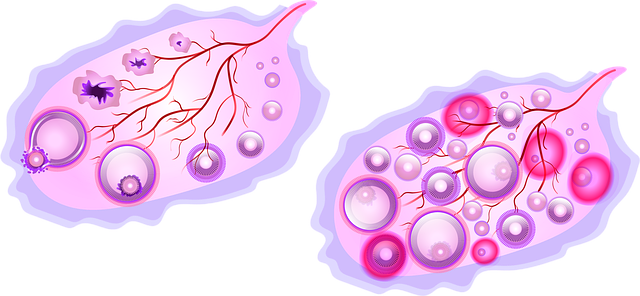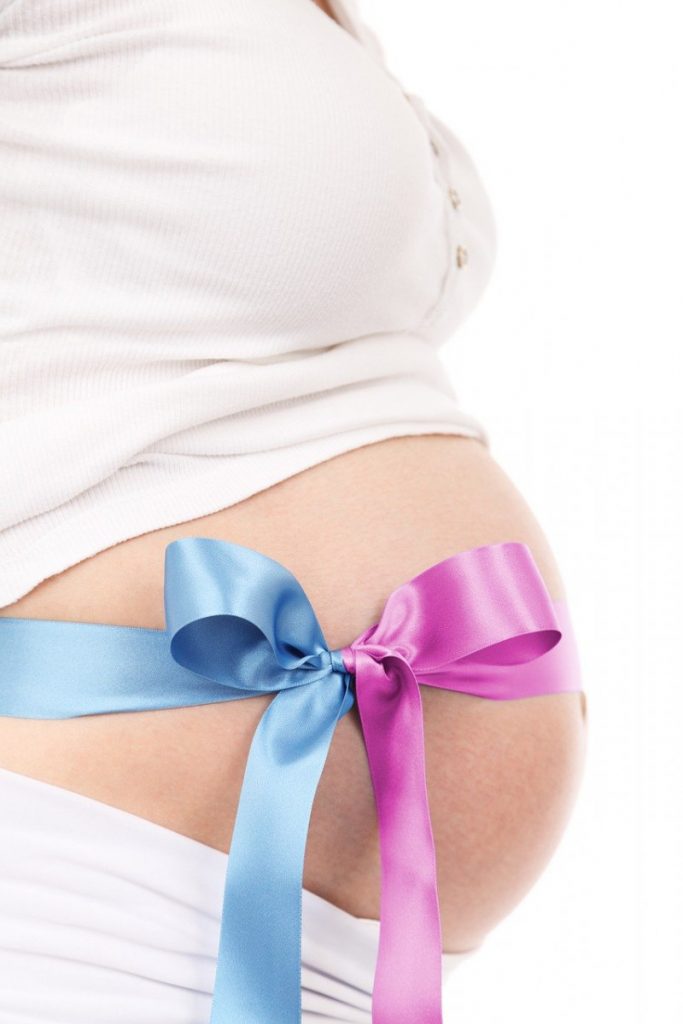Do you have irregular or skipped periods? Heavy bleeding? hair growth in unwanted areas? Acne? Headaches? Pelvic pain? Weight gain? difficulty becoming pregnant?
Well, if you have two or more of these signs, you may have Polycystic ovary syndrome (PCOS) – a condition that affects a woman’s hormone levels.
So how does PCOS affect conception and pregnancy and how to treat the condition?

Many women have PCOS but don’t know it yet.
Doctors diagnose PCOS if you have at least 2 of 3 main symptoms – high levels of male hormones (androgen), irregular periods, and cysts in the ovaries.
A pelvic exam, blood tests, and ultrasound can confirm the diagnosis.
A pelvic exam can look for any problems with your ovaries, uterus, or other parts of your reproductive tract.
Blood tests check for higher-than-normal levels of male hormones, cholesterol, insulin, and triglyceride levels.
An ultrasound can look for abnormal follicles and other problems with your ovaries and uterus.
How Does PCOS Affect Conception?
During each monthly menstrual cycle several follicles, each of which contains an egg, begin the process of maturing.
However, usually only one of these follicles reaches maturity and releases a mature egg.
In PCOS, there are many small follicles in the ovary, each one containing an immature egg, and the eggs never mature enough to trigger ovulation.
The lack of ovulation causes an increase in the levels of androgen and estrogen and a decrease in the levels of progesterone.
Too much (or too little) of these hormones can make it tricky to get pregnant.
Your doctor might recommend prescription medications to help balance your hormones.
Hormonal imbalance can therefore affect your periods, fertility, and other aspects of your health, including metabolic issues, sleep apnea, endometrial cancer, and mood swings.
Women with PCOS also produce too much insulin, or the insulin they produce does not work as it should.
Insulin helps keep the glucose in your blood within a normal range. It does this by taking glucose out of your bloodstream and moving it into cells throughout your body.
The inability of insulin to function normally is one reason why women with PCOS tend to gain weight or have a hard time losing weight.
Being significantly Overweight can affect fertility by preventing ovulation due to higher-than-normal estrogen levels produced by fat cells.
How Does PCOS Affect Pregnancy?
Despite the increased risk factors, many women with PCOS can become pregnant.
However, PCOS increases the risk of pregnancy complications including:
- Miscarriage: PCOS can cause recurrent miscarriages in the first trimester due to factors such as low levels of progesterone, elevated androgen levels, insulin resistance, higher levels of fat tissue (adipose), and endometrial dysfunction, which could affect the lining of your uterus and impair embryo implantation.
- High blood pressure: PCOS can suddenly cause hypertension after 20 weeks of pregnancy. Severe hypertension can harm your heart, kidneys, and placenta causing your baby to be born prematurely.
- Preeclampsia: Can occur after the 20th week of pregnancy as a result of hypertension. The only way to cure preeclampsia is to deliver the baby, so you’ll usually be monitored regularly until it’s possible for your baby to be delivered.
- Premature delivery: PCOS is associated with a greater odds of having preterm birth – before week 37 of pregnancy. Common reasons for PCOS preterm births include premature rupture of the amniotic sac, hypertensive conditions (preeclampsia and gestational diabetes), and unknown causes.
- Gestational diabetes: When you’re pregnant, your body becomes slightly resistant to insulin, so that more glucose is available in your bloodstream and is passed to your baby. PCOS makes your body much more resistant to insulin, making your blood sugar levels rise abnormally. As a result, your baby can have low blood sugar, trouble breathing, and be very large – resulting in the need for cesarean, or C-section delivery.
- C-section delivery: Pregnant women with PCOS are more likely to have C-sections because of the pregnancy complications associated with PCOS – mentioned above.
How to Treat PCOS?
If you have been attempting to become pregnant for a while with no success, you need to change your lifestyle and seek medical help.
Lose Weight
If you are carrying extra weight, you may improve your fertility and PCOS symptoms by losing 5-10% of your weight.
Any diet that helps you lose weight can help your condition.
Regular exercises also help bring down PCOS symptoms and improve your health.
Foods to avoid if you have PCOS:
- processed foods that are generally high in sodium and unhealthy fats because they can often get deposited on the ovaries, worsening your condition.
- milk , cheese, and butter because dairy products can lead to higher levels of insulin. If you have to consume dairy, stick to skimmed milk but limit your intake.
- Refined flour (found in pasta, cakes, and white breads) because it is high in carbohydrates and low in fibre, which increases your blood sugar level and makes you develop insulin resistance, worsening your condition.
Foods to eat if you have PCOS:
- Fruits and vegetables because they are high in fibre and healthy fats, which help reduce the amount of insulin produced.
- Nuts and seeds like pine nuts, almonds, hazelnuts because they are high in healthy fats and proteins.
- Fish because it is high in protein and fatty acids (such as omega 3), which can help in balancing hormones.
Take Medical Boosters
In some cases, your doctor might recommend medications to regulate your menstrual cycle, trigger ovulation, improve your insulin levels, and alleviate your symptoms.
Medications to help you get pregnant with PCOS include:
- Metformin (a diabetes drug) to balance insulin levels
- Clomid (or clomiphene citrate) to help balance estrogen levels and trigger ovulation
- Birth control pills to regulate ovulation before the start of a fertility treatment
Surgery can be an option to improve fertility if other treatments don’t work.
Ovarian drilling is a procedure that makes tiny holes in the ovary with a laser or thin heated needle to restore normal ovulation.
Sometimes medications alone are not effective for women with PCOS and do not result in ovulation or pregnancy.
In this case, the patient may receive fertility injections which will help the body release an egg.
If none of the above works for you, don’t lose hope!
Medical research shows that women with PCOS have a high success rate of getting pregnant with IVF treatment because they can produce more eggs!








